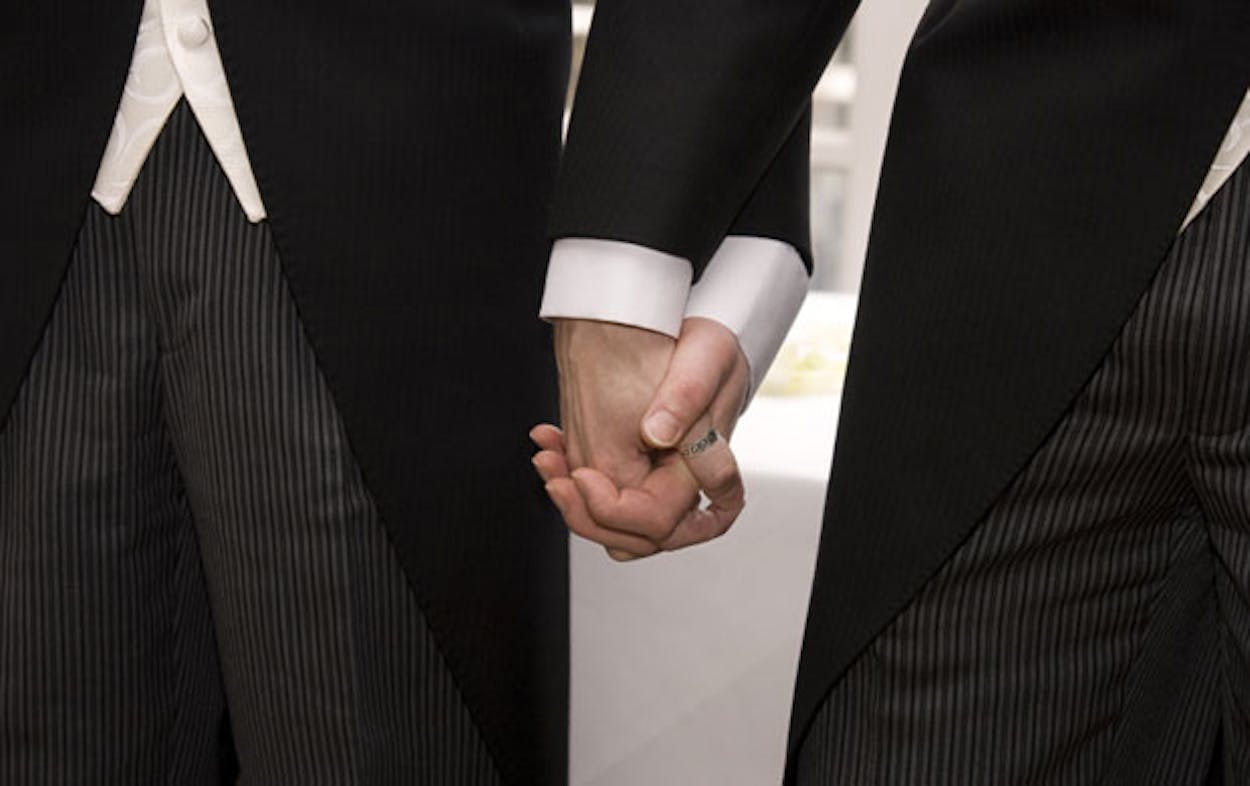Is there really a significant difference between the children of straight parents and those of gay ones? According to associate sociology professor Mark Regnerus of the University of Texas at Austin, yes, there is. His “New Family Structures Study,” published in the June issue of Social Science Research, found that the children of gay parents often fared worse socially, economically, and psychologically than those raised by straight parents.
Predictably, the research team’s findings and methods have unleashed a flood of criticism by LGBT-rights groups and outside experts alike and sparked heated online debate. Four major LGBT advocacy groups—GLAAD, the Human Rights Campaign, the Family Equality Council, and Freedom to Marry—released a joint statement condemning the study as “flawed, misleading, and scientifically unsound.”
The groups say that the study’s key problems include the fact that most of the children of gay parents included in the study were not the products of committed relationships, while the children of straight parents studied were raised in two-parent homes. The LGBT-rights groups were also alarmed that two socially conservative institutions had sponsored the studies.
The New Yorker‘s Amy Davidson took issue with the study’s methodology: “The way [this study] was conducted is so breathtakingly sloppy that it is useful only as an illustration of how you can play fast and loose with statistics,” she wrote.
In a piece published at Slate outlining his methology and defending his findings, Regnerus claims that it was his “better methods,” including his use of random sampling, that achiveved results that contradict plenty of other research from the past few decades. “I’m not claiming that all the previous research on this subject is bunk,” Regnerus wrote. “But small or nonrandom studies shouldn’t be the gold standard for research, all the more so when we’re dealing with a topic so weighted with public interest and significance.”
However, in his rebuttal of Regnerus’s piece, Slate‘s William Saletan criticized the makeup of the study’s research sample, the entirety of which was born between 1971 and 1994, “when same-sex marriage was illegal throughout the United States, and millions of homosexuals were trying to pass or function as straight spouses.” So, “the study doesn’t document the failure of same-sex marriage. It documents the failure of the closeted, broken, and unstable households that preceded same-sex marriage,” Saletan wrote.
Regnerus acknowledged this lack of committed same-sex parent households during that time period to Benedict Carey of the New York Times. “This whole narrative of a gay couple raising a kid together, staying together — that kind of thing didn’t exist much,” he said.
Saletan went on to examine the study’s questionnaire, saying that the “loaded” classification system excluded broken families from the sample of those raised by straight parents, but included broken families from the sample of those with gay parents.
Even the study’s definition of a “gay parent” has been called into question: researchers considered any parent who ever engaged in a romantic relationship with a same-sex partner as gay, regardless of if the parent identified as gay or lesbian. Of the 15,000 children studied, the sample included 163 children whose mother had a same-sex relationship, and 73 whose father did. “Just three of those who had lesbian mothers lived out their entire childhood with that parent, Dr. Regnerus said; none of those whose fathers had had a same-sex relationship lived full time with their fathers through childhood,” Carey reported.
This led Saletan to conclude that “this isn’t a study of gay couples who decided to have kids. It’s a study of people who engaged in same-sex relationships—and often broke up their households—decades ago.”
Regnerus conceded at Slate that “one same-sex relationship does not a lesbian make, necessarily,” but that the research team was “less concerned with the complicated politics of sexual identity than with same-sex behavior.”
However, Ta-Nehisi Coates of the Atlantic argued that “‘Sexual identity’ and ‘same-sex behavior’ are crucial components of what you’re studying. Waving them off as ‘politics’ strikes me as weirdly lazy—like saying, ‘I plan to study light, but I don’t want to get into waves and particles.’”
Many critics of the study have held that, rather than discrediting same-sex parents, the study reiterates the benefits of a stable, committed two-parent household, regardless of whether those parents are same-sex or not. “If this study shows anything, it’s not the effect of gay parenting, but of non-, or absentee parenting,” Davidson wrote.






